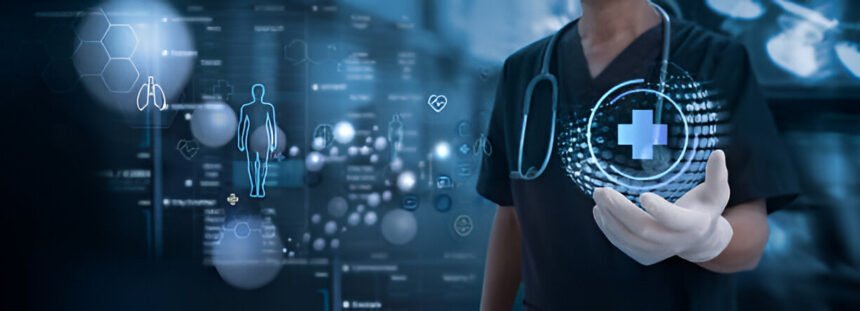In recent years, cutting-edge technology has made profound impacts on healthcare, transforming how medical professionals deliver care and how patients experience it. From advances in diagnostics to new treatment methodologies, technology is driving improvements across the healthcare spectrum. This article explores the various ways cutting-edge technology is shaping the future of healthcare and highlights some key innovations making a difference today.
- Revolutionizing Diagnostics with Advanced Imaging
- Artificial Intelligence and Machine Learning in Healthcare
- Telemedicine: Expanding Access and Convenience
- Advancements in Genomics and Personalized Medicine
- Biotechnology and Drug Development Innovations
- Addressing Challenges and Future Directions
- Conclusion
Revolutionizing Diagnostics with Advanced Imaging
One of the most significant advancements in healthcare technology is in the field of medical imaging. New imaging technologies, such as high-resolution MRI and CT scans, have revolutionized the way we diagnose and monitor diseases. These technologies provide detailed images of the internal structures of the body, enabling early detection of conditions such as tumors and neurological disorders. Innovations like functional MRI (fMRI) have further enhanced our understanding of brain activity, leading to better diagnostic and treatment options.
The advent of 3D imaging and digital pathology has also pushed the boundaries of what’s possible in diagnostics. 3D imaging allows for more precise visualization of organs and tissues, which is particularly beneficial in planning surgical interventions. Meanwhile, digital pathology leverages high-resolution scanners to convert glass slides into digital images, enabling pathologists to analyze and share information more efficiently. This is especially critical in oncology, where early and accurate detection can significantly influence patient outcomes.
Artificial Intelligence and Machine Learning in Healthcare
Artificial Intelligence (AI) and machine learning are transforming various aspects of healthcare, from diagnostics to patient care management. AI algorithms analyze vast amounts of data from medical records, genetic information, and imaging studies to identify patterns and predict patient outcomes. For example, AI is increasingly used to detect anomalies in imaging studies, forecast disease progression, and recommend personalized treatment plans. As AI continues to evolve, it promises to further enhance the precision and efficiency of healthcare delivery.
AI’s application isn’t limited to diagnostics alone. In the realm of drug discovery, machine learning models are being employed to identify potential drug candidates and predict their effectiveness before clinical trials. This not only accelerates the drug development process but also reduces costs. Moreover, AI-driven chatbots and virtual assistants are being integrated into healthcare systems to streamline administrative tasks, provide patients with information, and even monitor their symptoms in real time. These advancements are making healthcare more accessible and efficient, paving the way for a future where AI-driven tools play an integral role in patient care.
Telemedicine: Expanding Access and Convenience
Telemedicine has become a crucial component of modern healthcare, especially in the wake of the COVID-19 pandemic. It allows patients to receive consultations and follow-up care remotely, reducing the need for in-person visits and expanding access to healthcare services. This technology not only improves convenience for patients but also helps reduce healthcare costs. Additionally, telemedicine platforms often incorporate remote patient monitoring tools, which provide real-time data on patient health and enable timely interventions.
The impact of telemedicine extends beyond just remote consultations. With the integration of wearable devices, telemedicine platforms can now track a patient’s vital signs, physical activity, and even sleep patterns, offering a comprehensive view of their health. This continuous monitoring is particularly beneficial for managing chronic conditions, such as diabetes or hypertension, where timely data can lead to more effective interventions. Furthermore, the expansion of telemedicine has opened up new possibilities for mental health services, enabling patients to access therapy and counseling from the comfort of their homes, breaking down geographical and social barriers to care.
Advancements in Genomics and Personalized Medicine
Genomics has made significant strides in recent years, providing deeper insights into the genetic underpinnings of diseases. Advances in genomic sequencing technologies enable the identification of genetic mutations and biomarkers associated with various conditions. This knowledge has paved the way for personalized medicine, where treatments are tailored to an individual’s genetic profile. Personalized medicine promises more effective and targeted therapies, minimizing side effects and improving patient outcomes.
The potential of personalized medicine is vast. For example, in oncology, genomic testing can identify specific mutations in a patient’s tumor, allowing for the selection of targeted therapies that are more likely to be effective. This approach not only improves treatment outcomes but also spares patients from the toxic side effects of less targeted therapies. Additionally, pharmacogenomics—the study of how genes affect a person’s response to drugs—is enabling healthcare providers to tailor drug prescriptions to individual patients, reducing the risk of adverse reactions and improving therapeutic efficacy.
Biotechnology and Drug Development Innovations
Biotechnology continues to drive innovation in drug development, leading to the creation of new therapies and treatments. Technologies such as gene editing, synthetic biology, and cell therapy are at the forefront of these advancements. For instance, companies specializing in biological manufacturing company services, like TriRx, play a critical role in the development and production of biopharmaceuticals. These innovations are leading to the development of more effective and targeted treatments, revolutionizing how we approach disease management.
One of the most promising areas of biotechnology is gene therapy, which involves correcting or replacing defective genes responsible for disease development. This approach has shown great potential in treating genetic disorders like cystic fibrosis and muscular dystrophy. Similarly, cell therapy, which involves the transplantation of healthy cells to replace damaged ones, is opening new avenues for treating conditions such as Parkinson’s disease and heart failure. These biotechnological advancements are not only expanding the therapeutic arsenal available to clinicians but also offering new hope to patients with previously untreatable conditions.
Addressing Challenges and Future Directions
While the advancements in healthcare technology are promising, they also come with challenges. Ensuring data privacy and security is a significant concern as healthcare organizations increasingly rely on digital tools and data sharing. Additionally, the rapid pace of technological advancement necessitates continuous updates to regulatory frameworks and standards. As the field of healthcare technology continues to evolve, addressing these challenges will be crucial for maximizing the benefits of innovation.
Moreover, there is a growing need for healthcare professionals to be trained in the use of these advanced technologies. This includes not only understanding how to operate new devices and software but also interpreting the vast amounts of data generated by these tools. Interdisciplinary collaboration between technologists, clinicians, and regulatory bodies will be essential to ensure that healthcare innovations are effectively integrated into clinical practice and deliver on their promise of improved patient outcomes.
Conclusion
Cutting-edge technology is profoundly shaping the future of healthcare, offering new opportunities for diagnosis, treatment, and patient care. From advanced imaging and AI to genomics and biotechnology, these innovations are driving improvements across the healthcare landscape. As these technologies continue to advance, they hold the potential to transform healthcare even further, making it more personalized, efficient, and accessible for patients around the world. The future of healthcare is not just about treating diseases but about harnessing the power of technology to enhance the overall well-being of individuals and communities alike.








